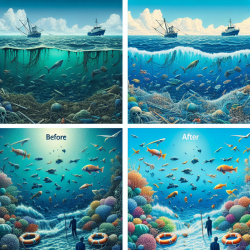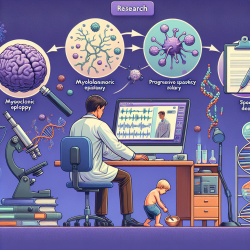Introduction
The future of ocean governance is a topic of significant importance, especially as we strive to align with the Sustainable Development Goals (SDGs) and the UN Ocean Decade. A recent research article, "The Future of Ocean Governance," provides a comprehensive analysis of the current state and potential future of ocean governance. This blog aims to distill the key findings and suggest how practitioners can leverage these insights to improve their skills and contribute to more sustainable ocean governance.
Understanding the Current Challenges
Ocean governance is inherently complex, involving multiple drivers and actors with varying worldviews and goals. The research identifies three major risks associated with governance-related issues:
- Overexploitation of marine resources.
- Inequitable distribution of access to and benefits from marine ecosystem services.
- Inadequate or inappropriate adaptation to changing ocean conditions.
These risks are framed within the context of the SDGs, which provide a holistic framework for sustainable development across social, economic, and ecological sectors.
Drivers of Change
The article outlines five key drivers that influence the evolution of ocean governance:
- Formal rules and institutions.
- Evidence and knowledge-based decision-making.
- Legitimacy of decision-making institutions.
- Stakeholder engagement and participation.
- Empowering communities.
These drivers are critical in shaping the direction of governance and can lead to two alternative futures by 2030: a 'Business as Usual' scenario and a 'More Sustainable Future.'
Pathways to a More Sustainable Future
To transition towards a more sustainable future, the research suggests several actions:
- Co-creation and implementation of comprehensive management plans.
- Enhancement of decision-making processes.
- Better anticipation and consideration of ambiguity and uncertainty.
These actions emphasize the importance of collaboration among states, civil society, local communities, and the market, including industry.
Practical Implications for Practitioners
Practitioners can improve their skills and contribute to better ocean governance by:
- Engaging with stakeholders to ensure inclusive decision-making processes.
- Utilizing evidence-based approaches to inform policy and management decisions.
- Fostering community empowerment to enhance local governance capacities.
By focusing on these areas, practitioners can help mitigate the identified risks and work towards a more sustainable future for ocean governance.
Encouraging Further Research
The complexity of ocean governance necessitates ongoing research and adaptation. Practitioners are encouraged to delve deeper into the findings of the research article and explore how these insights can be applied in their specific contexts. Continuous learning and adaptation are crucial in addressing the dynamic challenges of ocean governance.
To read the original research paper, please follow this link: The future of ocean governance.










